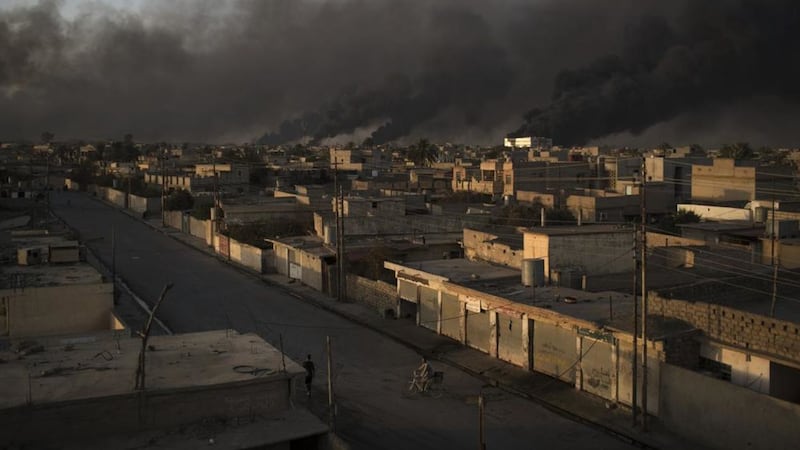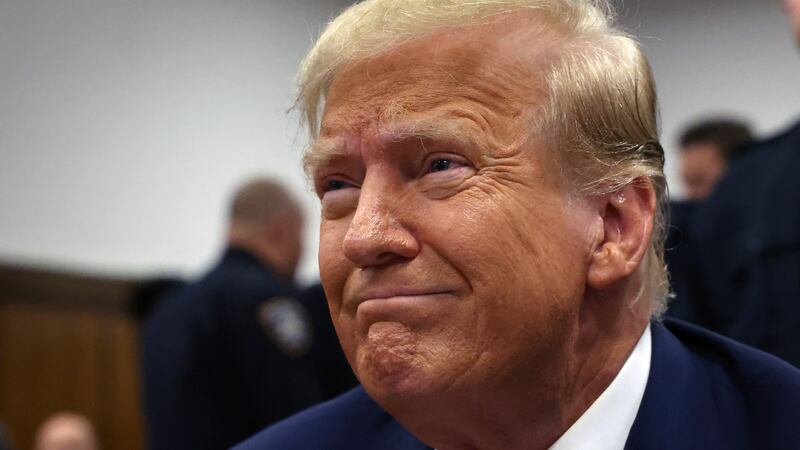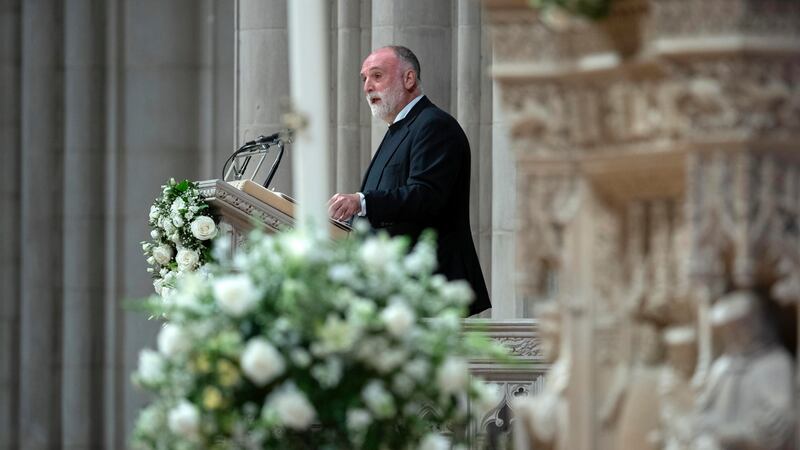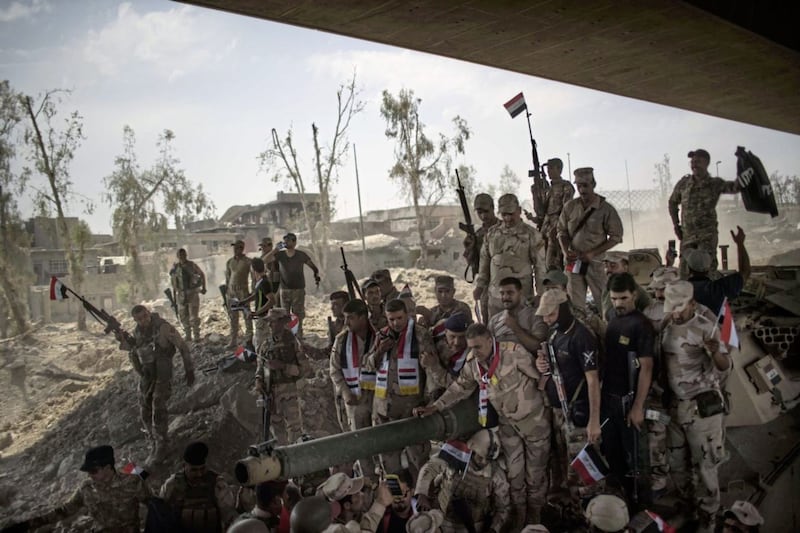Iraqi special forces were holding their positions along Mosul's eastern outskirts yesterday as poor weather hampered visibility in operations to rout Islamic State fighters from the country's second-largest city.
Brigadier General Haider Fadhil said no advances were planned for the day, as high humidity and clouds were obscuring the view of aircraft and drones - a key component of the operations provided by a US-led air campaign.
In the Mosul neighbourhood of Gogjali, which is inside city limits but just outside more urban districts, the guns were largely silent, though sporadic rifle cracks could be heard as well as some army artillery fire on IS positions.
The pause came a day after Iraqi troops set foot in the city for the first time in more than two years, gearing up for urban warfare expected to take weeks, if not months.
In the next stage, troops will have to navigate streets probably lined with booby traps, fighting house-to-house while trying to avoid killing civilians, more than one million of whom are still in the city.
Fighting to clear the IS extremists is expected to be a long haul. Mosul is the last major IS stronghold in Iraq, and driving the militant group from the city would be a major blow to its ambitions of creating a cross-border "caliphate" stretching into Syria. IS announced the project in Mosul in 2014, after it routed the much larger Iraqi military, which had been neglected and demoralised by corruption.
However, concern over the fate of civilians caught up in the fighting has been growing, after residents reported that IS militants were rounding up thousands of people to use as human shields and killing those with any suspected links to the security forces.
In one such account, the fighters went door to door in villages south of Mosul, ordering hundreds of residents at gunpoint to march north into the city, where urban fighting is expected to be heaviest and the presence of civilians will slow the army's advance as it tries to avoid killing innocents.
In the latest international condemnation of IS, which has carried out mass killings of perceived opponents in the past and boasted about them in grisly photos and videos circulated online, the United Nations called on authorities to collect evidence of IS abuses of civilians for future use by tribunals.
Adama Dieng, special adviser to UN secretary-general Ban Ki-moon on the prevention of genocide, also expressed concern over "the increasing risk" of sectarian violence or revenge attacks during the Mosul campaign, especially where state-sanctioned Iraqi Shiite militias are approaching Sunni communities.
"Any kind of retaliatory violence against individuals on the basis of their membership of a specific group is unacceptable and will undermine the legitimate calls of these communities for their own protection and for their long-standing grievances to be addressed," he said.
Aid agency the Norwegian Refugee Council warned that the lives of more than one million civilians trapped inside Mosul "are in grave danger" as Iraqi troops advance into the city.
The group, which works with refugees and internally displaced Iraqis, said around 18,000 Iraqis have fled their homes since the start of the massive military operation to retake Mosul more than two weeks ago.
The council's Iraq chief, Wolfgang Gressmann, said the agency's aid workers were "bracing for the worst".
"The lives of 1.2 million civilians are in grave danger, and the future of all of Iraq is now in the balance," he said.








